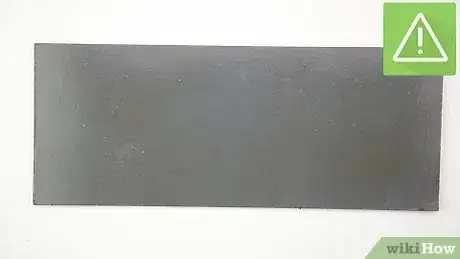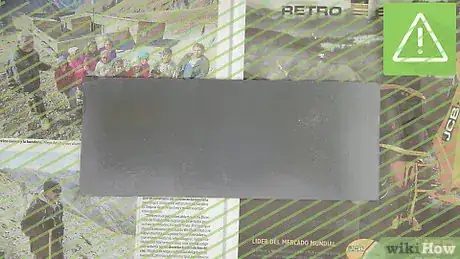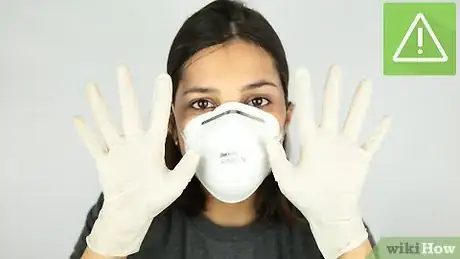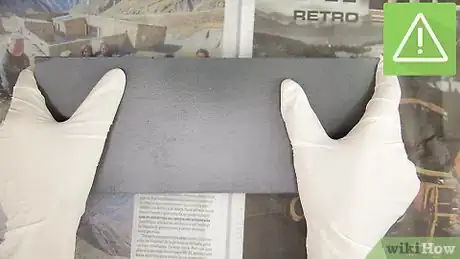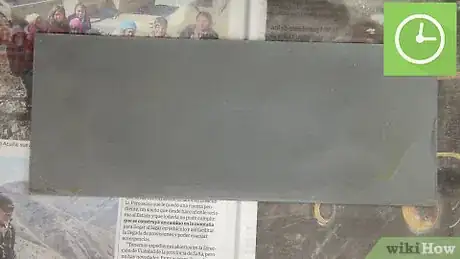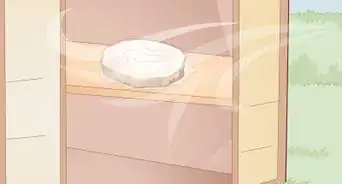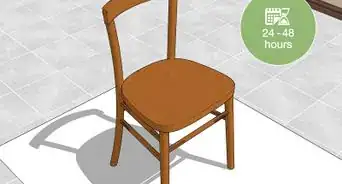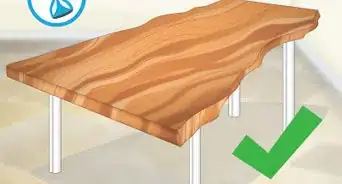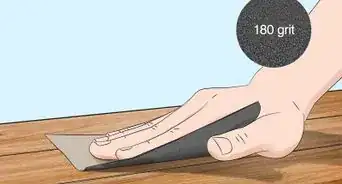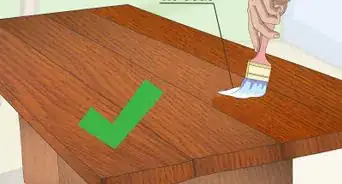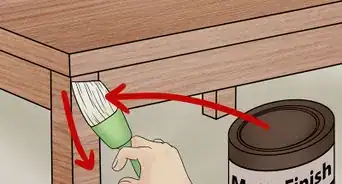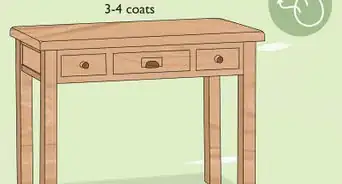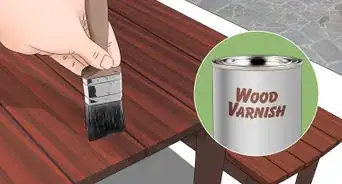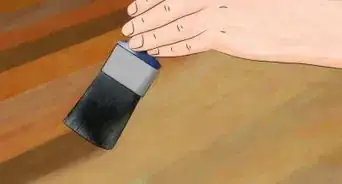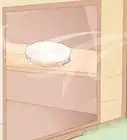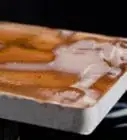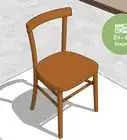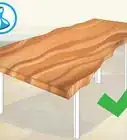This article was co-authored by Andres Matheu. Andres Matheu is the Owner of Hömm Certified Painting Systems, an Interior and Exterior Residential painting business based in the Washington, DC Metro area. Andres specializes in interior and exterior residential painting, color consultations, cabinet refinishing, wallpaper removal, and epoxy flooring among other services. An EPA Lead-safe Certified Firm, Hömm Certified Painting Systems has been awarded the Best of Houzz 2019 Service, Angie's List Super Service Award 2019, and Northern Virginia Magazine's 2018 Best Home Experts (painters) award.
There are 11 references cited in this article, which can be found at the bottom of the page.
This article has been viewed 68,410 times.
If you’re looking to update an old piece of furniture or refinish a wood floor, you may need to remove the varnish before you can paint, stain, or clean. Varnish tends to be a little stubborn, but this is definitely doable with a little elbow grease! It also helps that there are a few different ways to do this. In this article, we’ll show you how to get that varnish off as safely and quickly as possible.
Steps
Prepping the Area and the Surface
-
1Create good ventilation. Whether you're sanding or using a chemical solvent, it's a good idea to have ventilation. Open windows and use fans to create cross-ventilation if you're inside. If you can, take the piece outside or in a well-ventilated area to work on it.[1]
- To create cross-ventilation, place one fan so it's blowing into the area, and one so it's blowing out a window.[2]
-
2Protect the area from varnish and dust. If you must work in an area with other furniture, protect it with drop cloths. Also, spread a drop cloth on the floor to protect it if you're not removing varnish from the floor.[3]
- If you're stripping floors, remove all furniture so you have room to work.
Advertisement -
3Use safety goggles, a mask, and gloves to protect yourself. Wear safety goggles. If you're using a solvent, put on rubber gloves, long clothing, and a respirator mask. If you're just sanding, a dust mask and gloves should do.[4]
-
4Remove any hardware. If you're removing varnish from a piece of furniture, take off any hardware you can. Unscrew knobs, and remove hinges from cabinet doors. Put them in a safe place so you can find them later.
- If you are removing a lot of hardware, put it in separate plastic baggies and label the bags with a permanent market to make it easier to put back together later.
Sanding off the Varnish
-
1Start by using 150-grit sandpaper. To make it easier on yourself, use an orbital sander if you're doing a flat surface. If you're not doing a flat surface, use a sanding block or sandpaper in your hand. Always go with the grain of the wood, not against it, and make sure to get into the nooks and crannies.[5]
- Move on when you've removed most of the varnish and you need to smooth out the surface.
- Sanding is the most effective way to remove varnish. If that doesn't work, you may need to move on to a solvent like paint remover.[6]
-
2Move up to 220-grit sandpaper. After you've gone over the piece with 150-grit paper, choose 220-grit next. Go over the whole piece or floor with this sandpaper next, using the orbital sander or sanding block. Stop when you've removed all the varnish.[7]
- Nooks and crannies will be more difficult, so pay them special attention. You'll likely need to get into those areas with the sanding block or just sandpaper in your hand.
-
3Wipe off any dust. When you're done, use a damp tack cloth to go over the area. You don't want to leave dust on the piece, as it will stick in the stain or paint. Let the area dry before moving on.[8]
Removing Varnish Using Solvents
-
1Pick water-based solvent or a traditional paint-stripping solvent. If you're sensitive to fumes, try something water-based, such as Safest Stripper or Citristrip. These don't work as fast as harsher solvents, but they are a bit gentler.[9] Otherwise, a traditional brushable solvent will do the trick. Typically, these solvents are labelled "paint strippers."
-
2Sand down the area with coarse sandpaper. Even though you're using a solvent to take off the varnish, it helps to sand it down a bit first. Sanding it will let the solvent penetrate better. Spend at least 10 minutes going over the whole piece if you're doing a piece of furniture, going along the grain. If you're doing the floor, just make sure to give the whole area a good, quick scrubbing all over.
- Try a grit somewhere in the 40 to 70 range.
-
3Apply the solvent. Liberally apply a solvent that will remove varnish to the whole area. Paint it on thick, as it needs to be thick to remove the varnish. Make sure you get it into all the small nooks, so it can work everywhere.
- Make sure you have plenty of ventilation for this step.
-
4Leave the solvent on the area. You'll need to let the varnish soak in to work. How long you let it soak depends on the solvent. With some solvents, it can be as long as 2 hours. With others, it may be as little as 20 minutes. Read the back of your bottle to find out how long it should sit.[10]
- If you need to leave it longer than an hour or 2, cover it with a tarp so the solvent stays wet.
-
5Rub the area down with steel wool to remove the varnish. Using fine steel wool (#0000), scrub the area down. Make sure you move in the direction of grain instead of against it. The steel wool will remove any varnish on the furniture with the assistance of the solvent.[11]
- If it's particularly thick varnish, you may need to use a metal scraper or brush instead.[12]
-
6Apply the package-recommended neutralizer. After using a solvent, you'll generally need to wipe it down with something to neutralize it. That could be water or mineral spirits. Others have brand-specific neutralizers. Read the package to find out what you need. Whatever you use, you can apply it with a paper towel, moving with the grain of the wood.[13]
-
7Clean up with fine sandpaper. When everything is mostly removed, use 150-grit sandpaper to take off any bits of varnish you see leftover. You can also smooth out any rough spots while you're at it. Wipe it down with a wet rag to remove any residue.[14]
Expert Q&A
Did you know you can get expert answers for this article?
Unlock expert answers by supporting wikiHow
-
QuestionWhat is the best varnish remover?
 Andres MatheuAndres Matheu is the Owner of Hömm Certified Painting Systems, an Interior and Exterior Residential painting business based in the Washington, DC Metro area. Andres specializes in interior and exterior residential painting, color consultations, cabinet refinishing, wallpaper removal, and epoxy flooring among other services. An EPA Lead-safe Certified Firm, Hömm Certified Painting Systems has been awarded the Best of Houzz 2019 Service, Angie's List Super Service Award 2019, and Northern Virginia Magazine's 2018 Best Home Experts (painters) award.
Andres MatheuAndres Matheu is the Owner of Hömm Certified Painting Systems, an Interior and Exterior Residential painting business based in the Washington, DC Metro area. Andres specializes in interior and exterior residential painting, color consultations, cabinet refinishing, wallpaper removal, and epoxy flooring among other services. An EPA Lead-safe Certified Firm, Hömm Certified Painting Systems has been awarded the Best of Houzz 2019 Service, Angie's List Super Service Award 2019, and Northern Virginia Magazine's 2018 Best Home Experts (painters) award.
Commercial Painter
Warnings
- Keep in mind that you'll need to read up on your state's regulations for disposal. Often, you can't throw the solvent-soaked rags or varnish residue straight into the trash.[15]⧼thumbs_response⧽
Things You'll Need
- Sandpaper of various grits
- Solvent
- Neutralizer
- Fine steel wool
- Scraper or metal brush, optional
- Power sander
- Safety goggles
- Dust mask or respirator
- Rubber gloves
References
- ↑ http://www.diynetwork.com/how-to/skills-and-know-how/painting/safety-precautions-for-chemical-strippers
- ↑ http://www.addicted2decorating.com/how-to-strip-paint-stain-polyurethane-from-furniture-my-top-tips.html
- ↑ http://www.diynetwork.com/how-to/skills-and-know-how/painting/safety-precautions-for-chemical-strippers
- ↑ http://www.diynetwork.com/how-to/skills-and-know-how/painting/safety-precautions-for-chemical-strippers
- ↑ https://www.bobvila.com/articles/how-to-remove-varnish/#.WhVdSDdrzIU
- ↑ Andres Matheu. Commercial Painter. Expert Interview. 28 July 2020.
- ↑ https://www.bobvila.com/articles/how-to-remove-varnish/#.WhVdSDdrzIU
- ↑ https://www.bobvila.com/articles/how-to-remove-varnish/#.WhVdSDdrzIU
- ↑ https://www.bobvila.com/articles/how-to-remove-varnish/#.WhVdSDdrzIU
- ↑ http://www.addicted2decorating.com/how-to-strip-paint-stain-polyurethane-from-furniture-my-top-tips.html
- ↑ https://www.bobvila.com/articles/how-to-remove-varnish/#.WhVdSDdrzIU
- ↑ http://www.addicted2decorating.com/how-to-strip-paint-stain-polyurethane-from-furniture-my-top-tips.html
- ↑ http://thecraftsmanblog.com/how-to-strip-paint-part-1-chemical-strippers/
- ↑ http://www.addicted2decorating.com/how-to-strip-paint-stain-polyurethane-from-furniture-my-top-tips.html
- ↑ http://thecraftsmanblog.com/how-to-strip-paint-part-1-chemical-strippers/
About This Article
If you have an old piece of furniture or a wood floor that you want to update with a new color or stain, you’ll need to remove the varnish first. Make sure to work in a well-ventilated area and use safety goggles, a mask, and gloves to protect yourself. Start by sanding off the old varnish with 150-grit sandpaper. After you remove as much as you can, move to 220-grit sandpaper until all of the varnish is gone. When you’re done, wipe off any dust with a damp cloth. Another way to remove varnish is to use a water-based solvent or a traditional paint-stripping solvent. Start by sanding down the area a bit first so the solvent penetrates better. Then, liberally apply the solvent and rub the area down with steel wool. After using the solvent, you’ll need to wipe the surface down with a neutralizer, like water or mineral spirits. To learn how to prepare furniture before removing varnish, keep reading!
